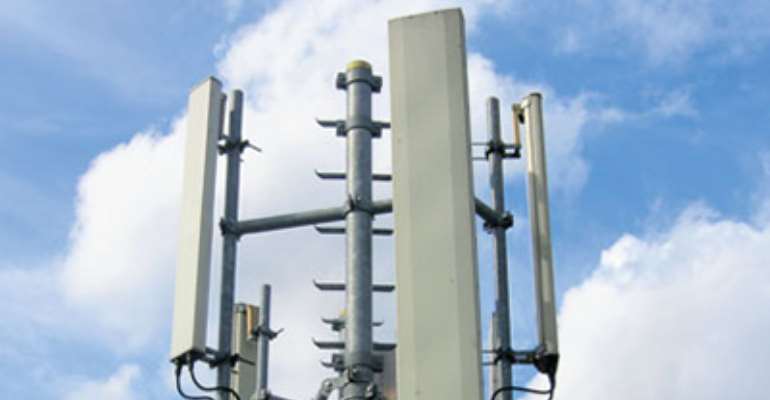MOBILE PHONE SERVICES TO REMAIN POOR FOR 15 MONTHS - OPERATORS

GSM base station antenna
Quality of service in the country's mobile telecommunications market is likely to remain poor for the next 15 months because new base stations will not come on stream before then.
An investigation by our correspondent revealed that the over 90 million mobile subscribers in the country would continue to grapple with increased 'drop calls', poor network availability, service accessibility and voice quality in the next 12 to 15 months.
The quality of service across all networks in the country had been on the decline due to capacity constraints and infrastructure challenges such as poor power supply, logistic problems, vandalism and theft of vital telecoms equipment, among others.
As a result of the raging price competition among the network operators, more Nigerians can now afford telecoms services due to affordable tariffs.
The operators have, however, lamented that this has led to serious network congestion and poor QoS.
The solution to network congestion in the country, according to experts, is to build more base stations.
However, the Nigerian Communications Commission and some of the telecoms operators said that new base stations might not come on stream in the next 12 to 15 months as a result of the mandatory multiple statutory requirements and permits across all the states of the federation and local government councils.
The Executive Vice-Chairman, NCC, Dr. Eugene Juwah, told our correspondent that network congestion could only be solved by extra investment in the market, but cautioned that it would not happen overnight due to multiple regulations by the many agencies of the government.
He noted that poor QoS could not be addressed without building new base stations and transmission facilities.
Juwah, however, lamented that statutory requirements for building base stations in the country, such as the Environmental Impact Assessment report and other permits from state and local governments, were affecting the timely erection of towers.
'So, if you invest in a base station today, it will take one year or more before you see the result. However, because poor quality of service can only be improved upon by new investments, all the regulatory requirements from other bodies that we do not control contribute to delays in erecting base stations in the country,' he said.
Though, the NCC boss acknowledged that the operators had many base stations in the pipeline, he chided them for not being proactive enough in tackling the QoS problem.
'I will put a lot of blame on the operators because they should have seen it coming and they should have invested a year earlier,' he said.
The Corporate Services Executive, MTN Nigeria, Mr. Akinwale Goodluck, who spoke with our correspondent on the sidelines of the unveiling of the company's 10th anniversary logo in Lagos on Tuesday, said the company had 7,000 base stations across the country, adding that its closest competitor had half of that figure.
He said MTN was not happy about the poor QoS in the country and that it was ready to invest more, but added that regulatory delays across the country was affecting the roll-out of new BTS.
'We know that the quality of service is not fine and we believe that we have a lot of work to do and we are not afraid to do the work. The area we have the biggest challenge is our radio infrastructure. And to resolve network congestion, you have to continue to invest in your radio infrastructure, which means you must build more masts,' he said.
Goodluck noted that a telecoms operator required eight weeks to deliver a base station from scratch to finish at the inception of GSM services in Nigeria.
He, however, said that the time required for a base station to be erected and operated in 95 per cent of the states of the federation was now between 12 months and 15 months, even with the best efforts.
'If somebody says that there is congestion in Ikeja, we need to build a mast there to resolve the problem. However, with all regulatory bottlenecks at all levels, we will need between 12 months and 15 months to erect that mast in Ikeja,' he said.
This, according to him, will affect QoS and in turn lead to consumer dissatisfaction.
